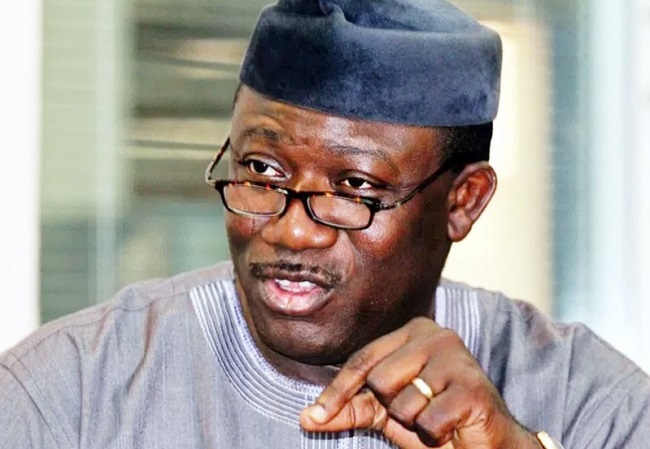Experts and stakeholders in Ekiti State have reiterated the need for strong government policies in addressing the increasing changes in the environment towards protecting the ecosystem for the benefit of mankind.

The stakeholders who spoke during a one-day workshop, titled, “Climate Crisis : Causes, Impacts and Adaptation”, organised by Triple Green Environmental Development Foundation (TGED), noted that there is a need for the people to take charge of their environment considering the negative impact on the people.
The Founder and Chief Executive Officer of TGED, Oluwaseyi Ebenezer, explained that the workshop became necessary to expose stakeholders to the effect of climate change and bridge the knowledge gap in climate-related matters within the state.
She stated that government should be responsive and responsible in mitigating the effect of climate change on the society through deliberate efforts and policies, adding that sensitisation on climate-related matters must be introduced in school curricular for the children to serve as advocates in the efforts for a safe and hygienic environment.
According to her, “Climate change is one of the biggest issues the world has to contend with and the devastating effects can be felt across board. Research has further shown that a greater percentage of people do not understand the causes and the impacts climate change has on their day to day lifestyle.“
On his part, a lecturer at the Federal University, Oye-Ekiti (FUOYE), Dr Abayomi Oshatimi, revealed that climate change causes physical, biological and psychological effects on the people, saying majority of heath challenges could be traced to the consistent changes being witnessed in the environment.
The lecturer said, “When you think about climate change, what’s the first thing you think about? For most people, their first thought is the destruction of the environment. This includes things like desert encroachment and flooding. While this is a huge impact of climate change, the effects of global warming on human health are not to be ignored.
“Our health is closely linked to the environment we live in. Between 2030 and 2050, the World Health Organisation expects climate change to cause 250,000 deaths per year as a result of heat stress, diarrhoea, malaria and childhood malnutrition. By lowering our carbon footprint, we can help to save the earth and preserve human lives.”
He called for the establishment of climate change club in primary and secondary schools for students to serve as agents in the enlightenment of people in the society on the need for them to preserve the environment in the interest of the future.
Also, the Senior Investigative Officer at the National Human Rights Commission, Theophilus Gbadeyan, disclosed that climate change is threatening the right to life of people in the country, saying the citizens must take cognisance of the ecosystem.
“It is now beyond dispute that climate change caused by human activity has negative impacts on the full enjoyment of human rights, such as the rights to life, self-determination, development, food, health, water and sanitation and housing.
“Mitigation and adaptation efforts that place people at the centre, that are gender sensitive, that ensure the rights of persons, groups and people in vulnerable situations, including women, children, indigenous people and the poor, could go a long way to ensure that climate actions benefit those facing the greatest risks.“
Participants at the event include National Emergency Management Agency (NEMA), National Environmental Standards and Regulations Enforcement Agency (NESREA), National Human Rights Commission, federal and state fire services, state ministries of environment, security agents, academia, media, and students, among others.
By Bolanle Lawal
